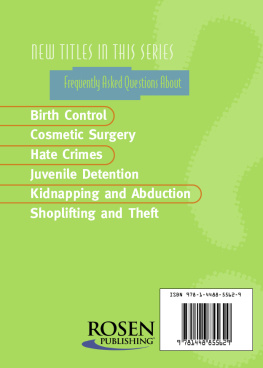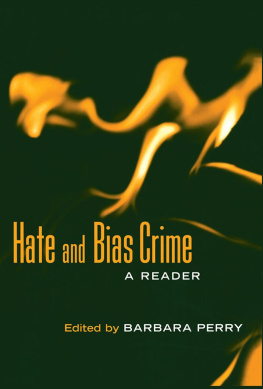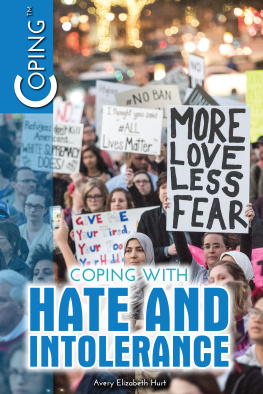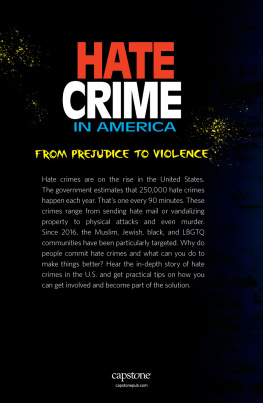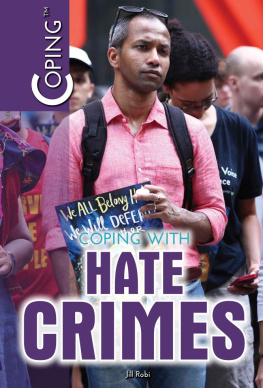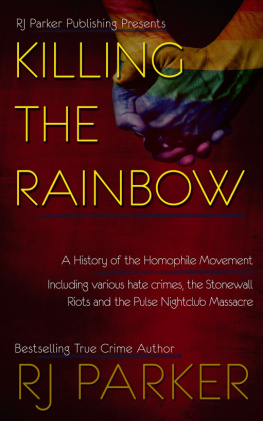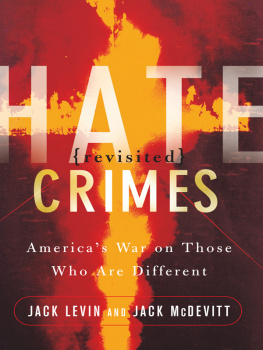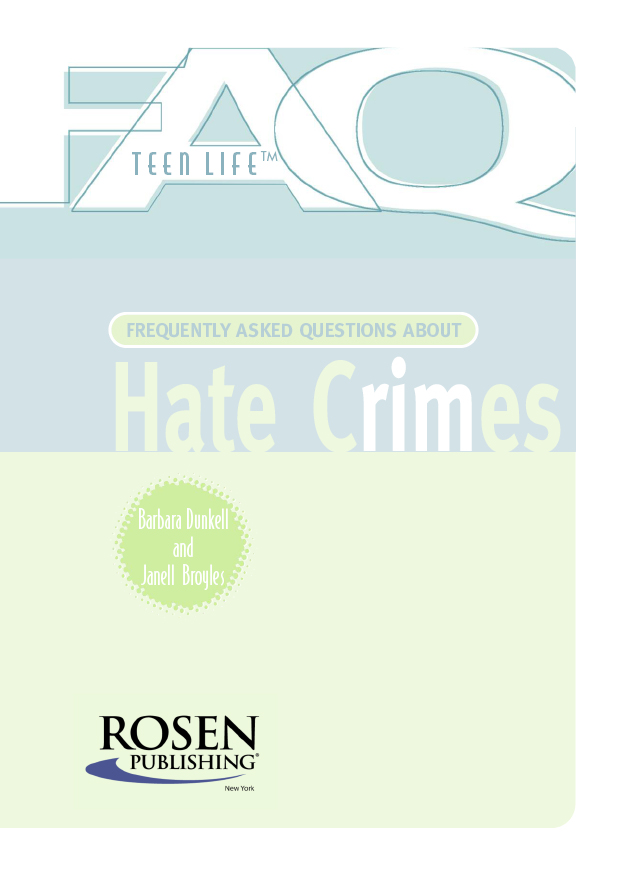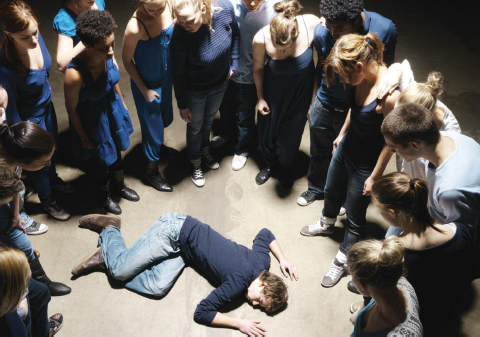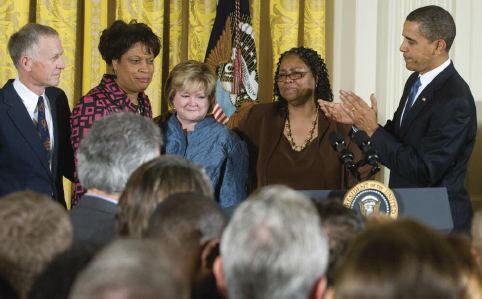Published in 2012 by The Rosen Publishing Group, Inc.
29 East 21st Street, New York, NY 10010
Copyright 2012 by The Rosen Publishing Group, Inc.
First Edition
All rights reserved. No part of this book may be reproduced in any form without permission in writing from the publisher, except by a reviewer.
Library of Congress Cataloging-in-Publication Data
Dunkell, Barbara.
Frequently asked questions about hate crimes/Barbara Dunkell,
Janell Broyles.
p. cm.(FAQ: teen life)
Includes bibliographical references and index.
ISBN 978-1-4488-5562-9 (library binding)
1. Hate crimesJuvenile literature.
2. Hate crimesUnited StatesJuvenile literature.
I. Broyles, Janell. II. Title.
HV6773.5.D86 2012
364.15dc22
2011015910
Manufactured in China
CPSIA Compliance Information: Batch #W12YA: For further information, contact Rosen Publishing, New York, New York, at 1-800-237-9932.
Contents
What Is the Definition of Hate Crime?
How Were Hate Crimes Brought to the Public Eye?
How Does Hate Crime Happen?
Who Have Been Victims of Hate Crimes in America?
Are Hate Crimes a Problem Globally?
What About Future Hate Crime Laws?
Glossary
For More Information
For Further Reading
Index
chapter one
WHAT IS THE DEFINITION OF HATE CRIME?
According to an article in February 2011, posted on the College of Criminal Justice and Security Web site at the University of Phoenix in Arizona, one of the chief issues concerning hate crimes is the definition of what constitutes a hate crime. In a report, Rose Ochi, director of Community Relations Services in the U.S. Department of Justice, wrote that hate crime is described as the violence of intolerance and bigotry, intended to hurt and intimidate someone because of their race, ethnicity, national origin, religion, sexual orientation or disability. She also stated that those who commit hate crimes use explosives, arson, weapons, vandalism, physical violence, and verbal threats of violence to instill fear in their victims.
Hate is a universal human emotion. It is an extreme rejection of another person, the desire to have nothing to do with that person, and sometimes, the desire to hurt or kill that person. Everyone feels hate at some point in their lives, but most people choose not to lash out or are taught that it is wrong to use violence against others.
Teens surround a victim during a bias attack. According to the Federal Bureau of Investigation, of the 7,789 hate crimes that were reported in 2009, 61 percent were offenses committed against individuals.
Hate crimes arise when a person or a group decides to act on hatred of another person or a group in a criminal way.
Hate Crime Laws
Some groups oppose the existence of hate crime laws, maintaining that regular laws against assault and violence protect all citizens, regardless of their color, ethnicity, religious beliefs, gender, or sexual orientation. Consequently, they believe, a special category of crime is not needed as further protection.
When the New York State legislature enacted the Hate Crimes Act of 2000, however, it found the following:
Hate crimes do more than threaten the safety and welfare of all citizens... Hate crimes can and do intimidate and disrupt entire communities... Current law does not adequately recognize the harm to public order and individual safety that hate crimes cause. Therefore, our laws must be strengthened to provide clear recognition of the gravity of hate crimes and the compelling importance of preventing their recurrence. Accordingly, the legislature finds and declares that hate crimes should be prosecuted and punished with appropriate severity.
In 1993, the U.S. Supreme Court upheld the value of hate crime laws in Wisconsin v. Mitchell, a case involving a white youth beaten by a group of African Americans because of his race. The Supreme Court ruled that a state may consider whether a crime was committed or initially considered due to an intended victims status in a protected class, such as race.
The International Association of Chiefs of Police (IACP) defines hate crimes in the following way: A hate crime is a criminal offense committed against persons, property, or society that is motivated, in whole or in part, by an offenders bias against an individuals or a groups race, religion, ethnic/national origin, gender, age, disability, or sexual orientation. The IACP definition is the one most widely used, according to many police departments. Although it is a comprehensive hate crime definition, the IACP definition is only one definition. In U.S. federal laws, in state laws, and in international laws, hate crimes will vary in whom they include. Some differ in whether or not they include groups such as gays and lesbians, women, or the disabled, among other distinctions.
U.S. Federal Hate Crime Laws
U.S. Title 18, U.S.C., Section 245 makes it unlawful to willfully injure, intimidate, or interfere with any person, or to attempt to do so, by force or threat of force, because of that other persons race, color, religion, or national origin. This law also protects against discrimination or harm to anyone who goes to a public school or college, travels around the country, uses government programs, works for the U.S. government, applies to a labor union or employment agency, is a juror, is engaging in a federally protected act such as voting, or goes into a public place like a movie theater or hotel. Punishment can range from imprisonment up to a life term or the death penalty, depending on the circumstances of the crime.
The Civil Rights Program of the Federal Bureau of Investigation (FBI) reports on its Web site (http://www.fbi.gov/about-us/investigate/civilrights/civil_rights) that a hate crime is not considered a distinct federal offense. If it is racially motivated, however, it can be considered a civil rights violation, which does fall under the FBIs jurisdiction. Although state and local authorities handle most hate crime cases, FBI investigations can often provide extra weight and authority to local cases. A 1994 federal law also increased penalties for offenses proven to be hate crimes.
President Barack Obama applauds the sisters of James Byrd Jr. and the parents of Matthew Shepard after the enactment of the Matthew Shepard and James Byrd Jr. Hate Crimes Prevention Act in 2009.
In 2009, the U.S. Congress passed the Matthew Shepard and James Byrd Jr. Hate Crimes Prevention Act, and it was signed into law that same year by President Barack Obama. The law requires the U.S. attorney general to provide assistance for the criminal investigation of felonies motivated by prejudice. This prejudice can be based on the perceived or actual race, color, religion, national origin, gender, sexual orientation, gender identity, or disability of the victim. The act also eliminates the prerequisite that the victim be engaging in a federally protected act such as voting or going to school; gives federal authorities power to investigate hate crimes that are not pursued by local authorities; provides $5 million annually for funding in the fiscal years from 2010 through 2012 to assist state and local agencies and tribal jurisdictions in paying for investigation and prosecution of hate crimes; and requires the FBI to track statistics on hate crimes against transgender people (statistics on other groups are already being tracked).

